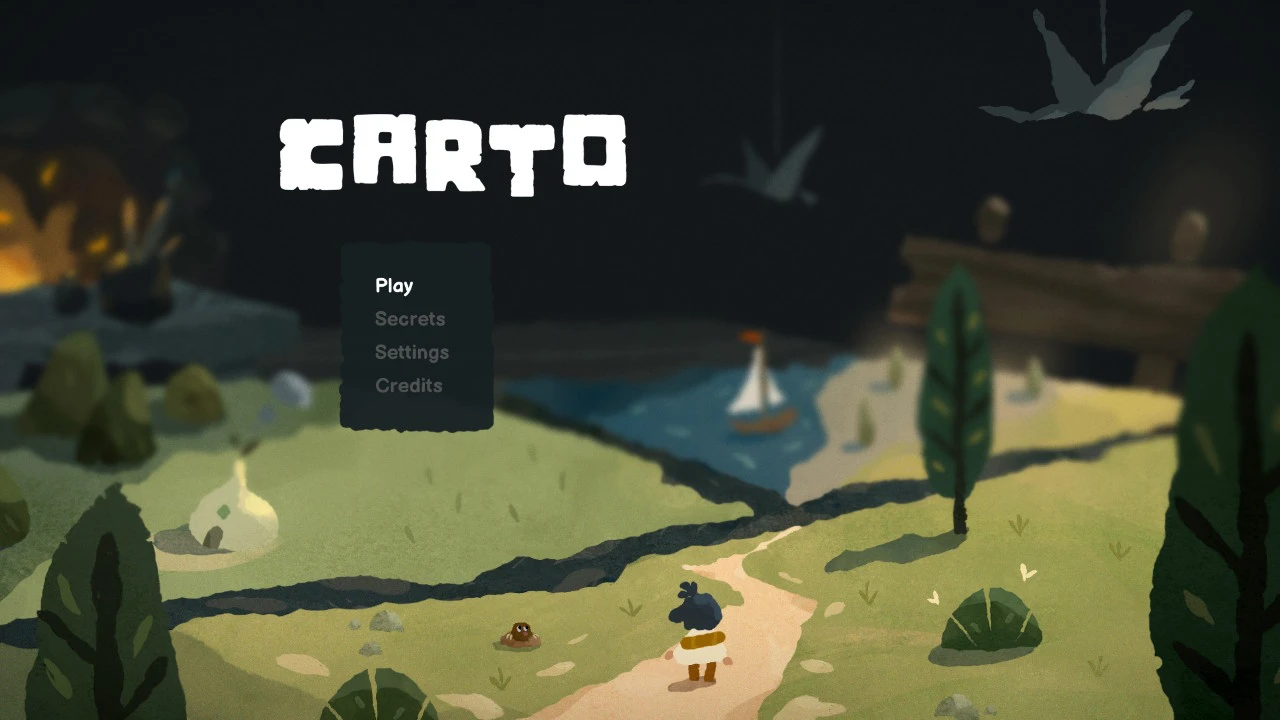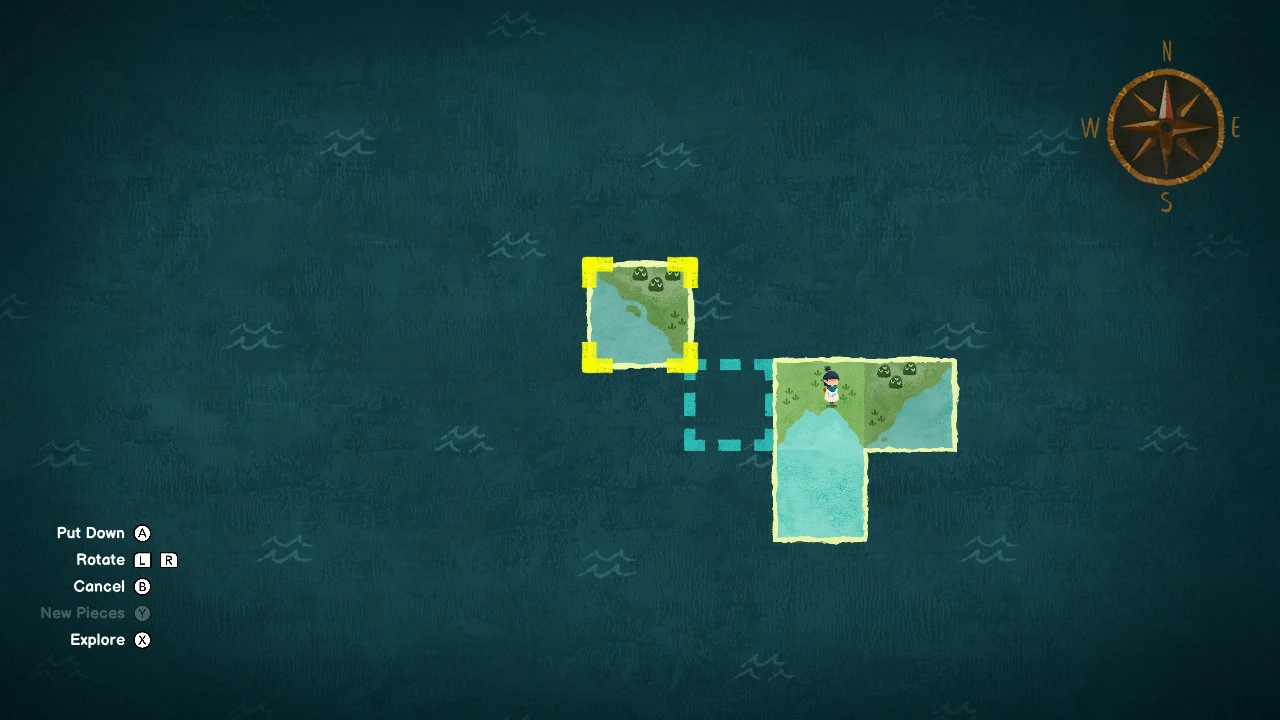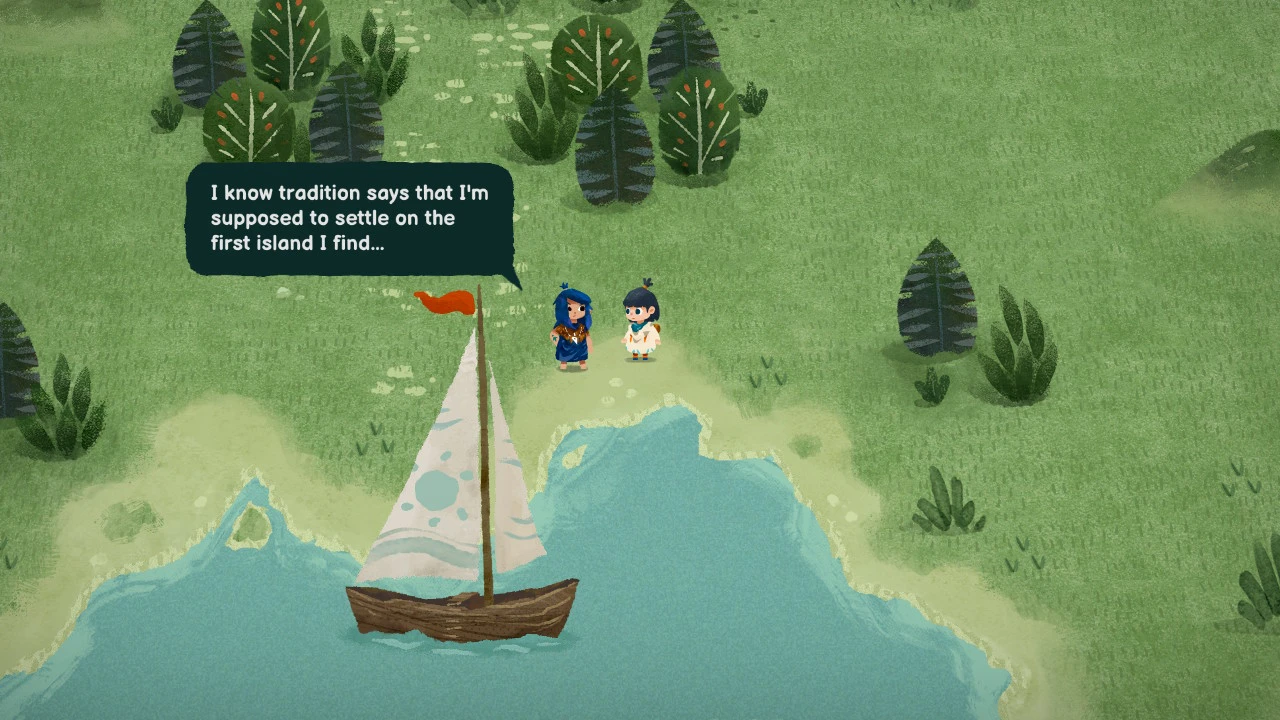by Stuart Urback
After much cajoling and recommending, I finally watched Schitt’s Creek this summer. Once I got past my struggle with watching people in awkward situations, what stuck out to me was how the show handled relationships. While it poked fun at the challenges of having wealth and losing it, it treated the relationships between characters sincerely. The problems that arose were caused by the falability of humans, the poor habits arising out of wealth, and miscommunication from cultural misunderstandings. It felt humane.

Carto felt the same. This is an achievement for a 2d puzzler, putting it alongside Journey or Thomas Was Alone in its focus on relationships at the center of the story. The game tells the story of a young girl named Carto who gets separated from her grandmother on a grand adventure when a storm collides with their airship. Carto has to travel through many foreign lands and cultures to find her way back to her grandmother.
The Mechanics
Carto, the game, accomplishes this through a tile laying mechanic similar to the one found in the board game Carcassonne. The only rule is that tiles have to be matched against tiles with similar edges: water to water, grass to grass, road to road, etc. As you walk around the different domains you’ll discover more tiles to lay down that will move the story forward. Most of the puzzles in the game require manipulating the tiles in unexpected ways to unlock new areas, or combining them in a specific pattern. This will unlock new tiles or reveal new characters. It’s hard to go into too much detail here without spoiling them, but I found them enjoyable and novel to discover.

I only found myself on Google once to get an answer I needed. I appreciated that the game was not here to make me overcome a daunting task, or unlock a specially hidden combination in order to continue the story. Solving the small puzzles made me feel smart in a warm-fuzzy sort of way instead of a conqueror of the world sort of way. And that felt right for the aesthetic of the game.
Carto managed to fit a lot of story into the actions I took as a player. I remember trekking across the desert, sliding around the ice caps, and jumping up down and around a volcano because the ways I manipulated the tiles matched the aesthetic of the location. It reminded me of Breath of the Wild, where the vast open spaces aligned with the melodies and the mechanics to reinforce the wistfulness and the feelings of emptiness. For Carto, the tiles, fun writing, and mechanic reinforced playfulness, adventure, and community.
The Story of the Game
What’s great about the story of Carto is that it doesn’t have the main character face an evil character who’s trying to take her new friends or her grandmother away. There’s no apocalypse, conquering, or drama to be found, just a problem to solve. She meets a challenge that is familiar and mundane (a storm) and she has to work with other people to overcome it. That doesn’t make the puzzles any easier, but it centers the story with more grounding. The different people she meets help her on her quest, exploring the world, but she (and you as the player), must solve the puzzles on her/your own to progress.

There's nowhere more clear with this than the first world, where you learn your soon to be friend is about to be sent away due to a tradition to explore and find a new home. She will never see her family again and is sad about this. A lot of the dialogue with her is about coming to terms with this fact, but without the angst of a typical “rebelling against and modifying tradition” or the shattered family trope with fighting or yelling. There is frustration, but everyone is open about their sadness and hope. As a result it's calm and uplifting even with a melancholy undercurrent.
There’s a mirroring here of the real world pandemic I suppose. The virus isn’t something to conquer or defeat. Even if we end up eradicating it, it won’t be through battle or capture. It will be because countless people cooperated and worked together to solve problems to produce vaccines that eliminate it. Obviously Carto’s challenge is much less severe, but the severity of staying home, of not seeing friends isn’t in a contest to win, it’s in mental perseverance and discipline instead of outward conquest. So Carto’s focus on an external challenge with communal support (support that in the real world has been stripped by the pandemic) felt similar in the problem but comforting in the warmth of interpersonal experiences that aren’t accessible at the moment.
Wrapping it Up
This is a small spoiler, but there's a moment at the end that speaks to the cleverness of the design. As you get ready to wrap up your journey, the game asks you to revisit each space and “finish” the map, connecting all of the tiles in that space into a single unit. This isn't a hard problem as there are limitless combinations. But this small ask reminds you of the places you've been, and literally closes the loop on what the puzzles pieces you've been using into a single “place”. It was a short walk down memory lane that made me smile.
In a year that was oppressive, disconnected, and sometimes prone to despair, Carto was thoughtful, humane, connecting disparate elements of what I love about storytelling, human connection, and puzzle design. It's available for PC, PS4, and Nintendo Switch. It's one of the few games I don't think there's a type for. You should go buy it and have fun on an adventure.
The opinions in this post are expressly the views of the author and do not reflect the views of their employer(s) or any entities that they might otherwise be affiliated.